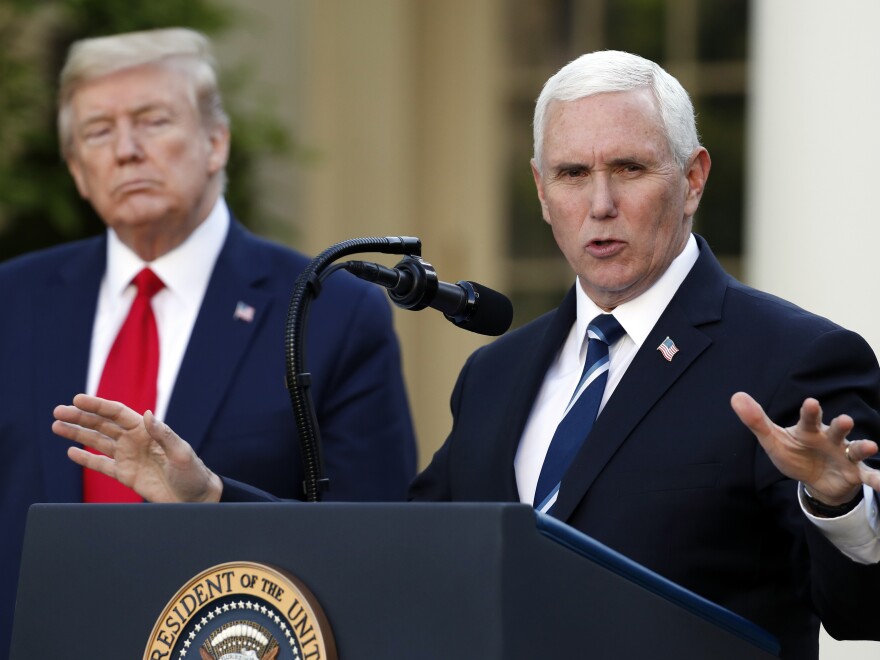Vice President Pence says comments he made last month about coronavirus testing were misunderstood by the public.
At issue: test distribution versus test completion.
Pence joined President Trump on Monday to announce a federal "blueprint" to help states ramp up their testing of the virus. Testing is seen as crucial for states to begin to lift social and economic restrictions.
During the briefing, Trump said that 200,000 people were tested on Saturday alone and that more than 5.4 million tests have now been conducted across the United States.
Pence then stepped in when a reporter asked why it took longer than expected to test that many people. The reporter noted that Pence had touted weeks earlier that the country would be at the 4 million-test mark by mid-March.
"I appreciate the question," Pence said, "but it represents a misunderstanding on your part and frankly the — a lot of people in the public's part — about the difference between having a test versus the ability to actually process the test."
The reporter followed up: "So when you said 4 million tests, seven weeks ago, you were just talking about tests being sent out, not actually being — being completed?"
Pence said that was "precisely correct."
He added that people would "still be waiting on those tests to be done in many cases, because they were tests that were designed to be run in the old laboratory model."
The distinction raised more questions about whether Pence in March had in fact misrepresented the administration's progress in expanding nationwide testing capacity.
On March 9, when governors and public health experts were expressing similar concerns about testing capacity, Pence said, "We literally are going to see a dramatic increase in the available — availability of testing," in response to questioning about the lack of testing at the time.
"Over a million tests have been distributed," Pence said at the March 9 briefing. "Before the end of this week, another 4 million tests will be distributed."
Copyright 2021 NPR. To see more, visit https://www.npr.org.



